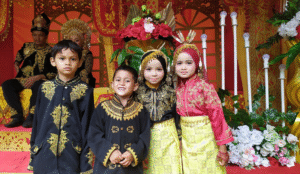Last Updated: January 31, 2026.
Tunku Abdul Rahman: The Inspiring Father of Malaysian Independence
When we speak about Malaysia’s journey to freedom and nationhood, one name rises above all others — Tunku Abdul Rahman. Widely celebrated as the “Father of Independence,” his life was dedicated to uniting people of different races and religions under a single national identity. His story is not just about politics and leadership, but also about humility, compassion, and vision.
This article takes you on an in-depth journey through his life: from his early years, his role in negotiating independence, his years as the First Prime Minister of Malaysia, and his enduring legacy that still resonates with Malaysians today.
-
Tunku Abdul Rahman is revered as Malaysia’s "Father of Independence" (Bapa Kemerdekaan) and served as the nation's first Prime Minister. A visionary leader, he is best known for successfully negotiating Malaya's freedom from British rule in 1957 entirely through peaceful means.
Beyond politics, Tunku Abdul Rahman championed racial harmony, working tirelessly to unite Malays, Chinese, and Indians under a shared national identity. His legacy is defined by humility, compassion, and an unwavering commitment to peace. This article explores the inspiring life of the man who laid the foundation for modern Malaysia.
Frequently Asked Questions (FAQ)
1. What did Tunku Abdul Rahman do for Malaysia?
Tunku Abdul Rahman is best known as the Father of Malaysian Independence. He led the movement to free Malaya from British colonial rule, negotiated peacefully with the British, and declared independence on 31 August 1957. Later, as the country’s first Prime Minister, he worked to unite Malaya, Sabah, Sarawak, and Singapore under the formation of Malaysia in 1963.
2. What is Tunku in Malaysia?
In Malaysia, “Tunku” is a royal title used by members of certain Malay royal families. It’s similar to “Prince” or “Princess” in English. Tunku Abdul Rahman carried this title because he was from the Kedah royal family, which gave him both respect and influence in politics.
3. What is the significance of Tunku Abdul Rahman Putra's memorial?
The Tunku Abdul Rahman Memorial in Kuala Lumpur is dedicated to preserving his legacy. It showcases his personal belongings, historical documents, and photographs, giving Malaysians and visitors a chance to learn about his role in the nation’s independence. It’s a place of remembrance that honors his contributions as the country’s first Prime Minister.
4. Who led the Malaysian delegation to the London talks for Independence?
The London talks in 1956 were led by Tunku Abdul Rahman. He headed the Malayan delegation, which successfully negotiated with the British government for Malaya’s independence. His leadership, diplomacy, and calm approach were crucial in ensuring the talks ended with a peaceful agreement.
5. Who is the man who saved Malaysia?
Tunku Abdul Rahman is often referred to as the man who “saved” Malaysia because of his role in gaining independence without bloodshed. Instead of war or violence, he used diplomacy, unity, and negotiation to secure freedom, earning him the title of “Father of Malaysian Independence.”
Early Life and Education of Tunku Abdul Rahman
Tunku Abdul Rahman Putra Al-Haj was born on 8 February 1903 in Alor Setar, Kedah. He was the twentieth child of Sultan Abdul Hamid Halim Shah, the 25th Sultan of Kedah. Despite being born into royalty, Tunku’s upbringing was far from luxurious. His mother, Che Manjalara, was of Thai descent, and her influence gave him an appreciation for cultural diversity from a young age.
As a boy, Tunku was mischievous and full of energy. Teachers described him as curious and lively, but sometimes distracted. He first attended a Malay school before being sent to a school in Bangkok, where he was exposed to Thai culture. Later, he continued at Penang Free School, one of the most prestigious English-language institutions in Malaya.
In the 1920s, Tunku traveled to England to further his studies. He enrolled at St. Catharine’s College, Cambridge, where he studied law and history. Life abroad was not easy. He often struggled financially, relying on allowances sent from Kedah, which sometimes arrived late. To make ends meet, he lived modestly and shared food with fellow Malayan students.
At Cambridge, Tunku was exposed to Western ideas of democracy, justice, and equality. These values shaped his vision of a future Malaya — a country where all races could coexist peacefully. After graduating, he pursued legal training at the Inner Temple in London, though he faced setbacks with his bar examinations. It took persistence and resilience, but he eventually qualified as a lawyer.
Early Career and Entry into Politics
Upon his return to Malaya in the 1930s, Tunku Abdul Rahman worked as a civil servant in Kedah. He served in various administrative positions, where he was known for his approachable style and concern for ordinary people.
During World War II, when the Japanese occupied Malaya, Tunku witnessed firsthand the struggles of his people. This experience deepened his resolve to work toward independence. He realized that Malaya could not remain under foreign control forever and that true freedom would only come when Malaysians governed themselves.
In 1951, he became president of the United Malays National Organisation (UMNO), a crucial turning point in his career. Under his leadership, UMNO formed the Alliance Party with the Malayan Chinese Association (MCA) and the Malayan Indian Congress (MIC). This coalition was groundbreaking — it showed that political unity among different ethnic groups was possible and necessary for independence.
Building Unity in a Diverse Nation
One of the greatest challenges in Malaya was its diversity. The population was made up of Malays, Chinese, Indians, and indigenous communities, each with different languages, religions, and traditions. Colonial policies had often emphasized these differences, creating divisions that seemed difficult to overcome.
But Tunku Abdul Rahman saw diversity as a strength rather than a weakness. He worked tirelessly to promote cooperation among communities. The Alliance Party became a model of power-sharing, ensuring that no single ethnic group dominated the others.
Tunku’s warm personality helped him win hearts. He was known for his sense of humor and humility. Ordinary citizens often saw him as approachable — a leader who listened rather than dictated. This personal touch allowed him to bridge divides at a time when unity was essential.
The Road to Independence
By the mid-1950s, the call for independence could no longer be ignored. In 1954, Tunku Abdul Rahman led a delegation to London to negotiate with the British government. The talks were not easy. The British doubted whether Malaya’s multi-ethnic society could handle self-rule without conflict.
But Tunku’s determination and diplomatic skills shone through. He assured the British that Malaya’s communities could work together under a democratic framework. His reputation as a moderate leader who valued consensus played a critical role in winning British confidence.
In 1955, Malaya held its first general elections. The Alliance Party, led by Tunku, won an overwhelming victory. This democratic mandate strengthened his position in negotiations.
Finally, on 31 August 1957, at Merdeka Stadium in Kuala Lumpur, Tunku raised his hand and shouted “Merdeka!” seven times before a jubilant crowd of 20,000. This moment, witnessed by millions through radio and later immortalized in history books, symbolized the birth of an independent Malaya.
Tunku Abdul Rahman as the First Prime Minister of Malaysia
With independence achieved, Tunku Abdul Rahman became the First Prime Minister of Malaysia. He served from 1957 until 1970, guiding the young nation through its formative years.
His administration was marked by:
- Peace and Stability – Tunku prioritized harmony among Malaysia’s ethnic groups. His policies emphasized inclusivity, ensuring that Malays, Chinese, and Indians felt represented in the new nation.
- Education – He expanded schools and higher learning institutions, believing that education was the key to national progress.
- Foreign Policy – Tunku strengthened Malaysia’s international standing. He was instrumental in establishing the Association of Southeast Asian Nations (ASEAN) in 1967, promoting regional cooperation.
- Nation-Building – He encouraged the development of sports, arts, and culture, believing these could foster national pride.
Perhaps his boldest move was the creation of Malaysia in 1963, which brought together Malaya, Sabah, Sarawak, and Singapore. Although Singapore left the federation in 1965 due to political tensions, Tunku’s vision of a united Malaysia endured.
Challenges and the May 13 Incident
Tunku’s years as Prime Minister were not without hardship. Economic inequalities and political rivalries simmered beneath the surface. The most painful moment came with the racial riots of May 13, 1969.
The clashes between Malays and Chinese revealed deep divisions in society. The violence shook the nation and left scars that took decades to heal. Critics accused Tunku of being too lenient, while others believed he had done his best to maintain peace.
In 1970, recognizing that the country needed new leadership, Tunku Abdul Rahman stepped down. He handed power to Tun Abdul Razak in what was seen as a selfless act. For Tunku, the stability of Malaysia mattered more than holding on to office.
The Personal Side of Tunku Abdul Rahman
Beyond politics, Tunku Abdul Rahman was a man of many interests. He loved football and served as president of the Football Association of Malaya. Under his leadership, Malaysia’s football team enjoyed success at the regional level.
He was also a writer and photographer. Tunku wrote several books, including memoirs that shared his thoughts on independence and governance. His love for photography allowed him to capture everyday moments, reflecting his appreciation for ordinary life.
Religiously, he was a devout Muslim, yet he promoted tolerance and mutual respect. His interpretation of Islam emphasized peace and kindness. He often said that religion should unite, not divide, and this belief guided his leadership style.
Legacy of Tunku Abdul Rahman
Today, the name Tunku Abdul Rahman is immortalized across Malaysia. Streets, institutions, and landmarks carry his name — from Jalan Tunku Abdul Rahman in Kuala Lumpur to Universiti Tunku Abdul Rahman (UTAR).
But his legacy is not just in names. His greatest contribution was the foundation of a multicultural Malaysia. He showed that independence was not just about removing colonial rule, but about building a society rooted in cooperation and respect.
Even decades after his passing in 1990, Malaysians continue to honor him as the Father of Independence. His speeches, photographs, and stories are studied in schools, ensuring that younger generations understand his role in shaping the nation.
Why Tunku Abdul Rahman Still Matters
In today’s Malaysia, where debates about race, religion, and identity remain sensitive, the values of Tunku Abdul Rahman are more relevant than ever. His belief in dialogue, inclusivity, and mutual respect provides timeless lessons.
As the First Prime Minister of Malaysia, he showed that leadership is not about dominance, but about compassion and balance. His example encourages Malaysians to remember that unity is the key to progress.
Tunku Abdul Rahman will stay at Malaysian heart
The story of Tunku Abdul Rahman is more than just the biography of a leader — it is the story of Malaysia itself. From his mischievous childhood to his triumphant “Merdeka!” cry, from his years as the First Prime Minister of Malaysia to his enduring legacy, he remains a symbol of courage, humility, and vision.
He once said, “We are all Malaysians. This is the bond that unites us.” Those words continue to echo across generations, reminding us that the true strength of a nation lies not in its size or wealth, but in the unity of its people.
Tunku’s journey is a reminder that independence is not just about freedom from colonialism — it is about the responsibility to build a just, peaceful, and inclusive society. For that, Malaysians will always honor him as Tunku Abdul Rahman, the Father of Independence.
Explore the Foundations of Malaysia
To dive deeper into the events and figures that shaped our nation, this page connects to detailed guides and historical facts about Malaysia’s journey:



